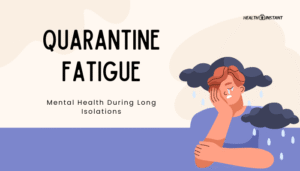Pandemic Babies: Are There Long-Term Effects on Babies Born During COVID?
Introduction Children born during the COVID-19 pandemic have been in a world of lockdowns, social distancing, and heightened parental anxiety. Parents often wonder if these disruptions might have a lasting effect on their babies’ mental, emotio...
Read MoreField Hospitals: How Parking Lots Became ICUs in Crises
Introduction In times of health emergencies—whether pandemics, natural disasters, or mass casualty events—hospitals can overflow with patients needing critical care. To accommodate surges beyond their standard capacity, authorities often depl...
Read MoreQuarantine Fatigue: Maintaining Mental Health During Long Isolations
Introduction Quarantines or mandatory isolations—whether due to pandemics, disease outbreaks, or public health emergencies—have forced people into extended periods of limited social contact. While short-term isolation might seem manageable, l...
Read MoreLockdown Lessons: How to Stay Healthy (and Sane) During Stay-at-Home Orders
Introduction Stay-at-home orders—often called “lockdowns”—help limit the spread of contagious diseases, but they also upend regular routines and social interactions. Being confined at home for extended periods can weaken motivation, disru...
Read MoreContactless Deliveries: Getting Medicine and Groceries Safely in a Pandemic
Introduction A pandemic or contagious outbreak reshapes everyday tasks, including grocery shopping and pharmacy runs. Many people turn to home delivery services to minimize potential exposure. But while ordering online is convenient, there are so...
Read More




